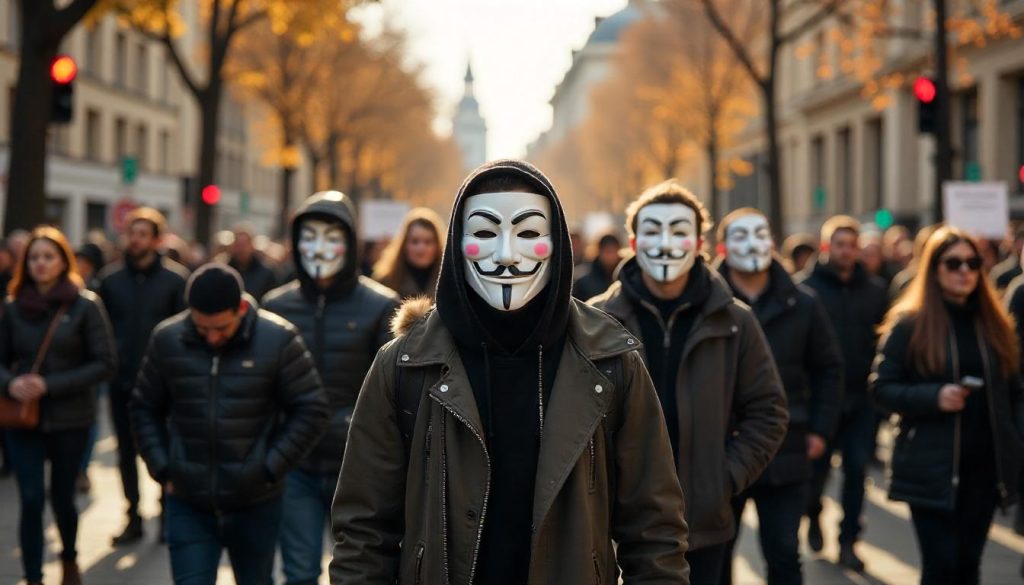Anonymous, the infamous decentralized hacking collective, has gained global attention for its cyber activism, often targeting governments, corporations, and other powerful institutions. But has Anonymous ever played a role in elections? The short answer is yes—though their involvement varies by region, intention, and outcome. In this article, we’ll explore how different Anonymous-linked groups have interacted with election processes, exposed vulnerabilities, and even tried to influence political discourse.

Anonymous and the Philippines: The 2016 Election Breach
In 2016, a group under the Anonymous banner calling itself Anonymous Philippines hacked into the website of the Philippine Commission on Elections (COMELEC). Their goal was to highlight serious concerns about the security of vote-counting machines used in that year’s national elections.
On the same day, another group named LulzSec Pilipinas leaked a massive 338GB database that reportedly contained sensitive voter data of over 54 million Filipinos. This breach exposed personal details such as full names, birthdates, addresses, passport information, and even biometric data. The incident sparked global outrage and highlighted the growing risks of digital infrastructure in electoral processes. It remains one of the most significant cyberattacks involving voter databases.
Operation AntiSec: Anonymous Takes on Electoral Corruption
Operation AntiSec was one of Anonymous’s broader campaigns that included attacks on several governments and corporations. Although not always directly tied to elections, some of the operation’s efforts were clearly politically motivated. For instance, in Zimbabwe, Anonymous targeted government websites in response to a widely criticized election. In Brazil, they protested what they called “rigged political systems” by exposing governmental data. Similarly, in Tunisia during the Arab Spring, Anonymous defaced official government websites to protest censorship and political suppression—an action that indirectly impacted the country’s future electoral reforms.
The 2009 Iran Election and Anonymous’s Support for Protesters
When Iranian citizens rose in protest after the disputed 2009 presidential election, Anonymous joined global efforts to support their cause. Partnering with The Pirate Bay, the group launched “Anonymous Iran,” a website offering tools to help Iranian activists bypass government censorship. This site provided proxies, encryption tools, and daily updates about the unrest in Iran. While Anonymous didn’t interfere directly with vote counting or candidate promotion, their digital tools played a crucial role in amplifying dissent and helping citizens speak out against perceived electoral fraud.
U.S. Elections: Anonymous vs. Donald Trump?
In the 2016 U.S. presidential race, a faction of Anonymous launched Operation Trump, a campaign to expose controversial aspects of Donald Trump’s past. They claimed they would leak damaging information about the then-presidential candidate, including private records and business dealings. However, not all members of the collective agreed with this direction. Some argued that taking sides in a democratic election contradicted the group’s principles of neutrality and anti-censorship. This caused internal friction and showcased the challenges of a leaderless organization operating on shared ideologies but individual interpretations.
The “Great Oz” and U.S. Election Interference Allegations
One of the more controversial claims from Anonymous surfaced during the 2012 U.S. elections. A post-election statement claimed that Anonymous had set up a digital “firewall,” nicknamed “The Great Oz,” to block election tampering attempts allegedly orchestrated by political strategist Karl Rove. According to these claims, the firewall stopped an unauthorized attempt to manipulate election results. However, the claims were never substantiated by independent sources, and no concrete evidence was provided. As with many actions attributed to Anonymous, separating myth from fact remains difficult.
Anonymous and Election Disinformation
While much of Anonymous’s focus has traditionally been on targeting censorship and exposing corruption, there have also been concerns about their role—intentionally or unintentionally—in spreading disinformation. For instance, some forums and social media accounts linked to Anonymous members have been involved in sharing unverified or misleading information around election times. While not always coordinated or sanctioned, such actions can impact voter perceptions, contributing to uncertainty and distrust in electoral systems.
Why Does Anonymous Get Involved in Elections?
Given their lack of formal structure, the motivations behind Anonymous’s election-related actions can vary widely. Here are a few common reasons:
-
Exposing corruption: Many Anonymous-led operations aim to uncover fraud, vote-rigging, or misuse of public power.
-
Supporting freedom of speech: In oppressive regimes, Anonymous often intervenes to help people share information and avoid censorship.
-
Making political statements: Sometimes, actions are taken to send a symbolic message, rather than to cause direct harm.
-
Pushing for reform: By highlighting flaws in electoral systems, they often hope to pressure governments into adopting more transparent practices.
Is Anonymous a Threat to Democracy?
This question has no easy answer. In some cases, Anonymous’s actions have revealed serious vulnerabilities that could have otherwise gone unnoticed—contributing to safer, more transparent elections in the future. In other instances, however, their actions have violated privacy, disrupted democratic processes, or spread confusion. Because the group lacks accountability and coordination, there is always a risk that rogue actors operating under the Anonymous label could cross ethical or legal boundaries, making it hard to gauge whether their involvement helps or harms democracy.
Conclusion: A Complicated Legacy
Anonymous has undeniably been involved in election-related activities, whether through exposing insecure systems, supporting civil uprisings, or launching politically charged campaigns. Their influence on elections is varied and complex, often toeing the line between activism and interference. As governments around the world move toward digital voting systems and online campaigning, the actions of groups like Anonymous will likely remain relevant. Whether seen as defenders of democracy or digital disruptors, one thing is clear: Anonymous will continue to make its presence felt—especially when it comes to the sensitive world of elections.